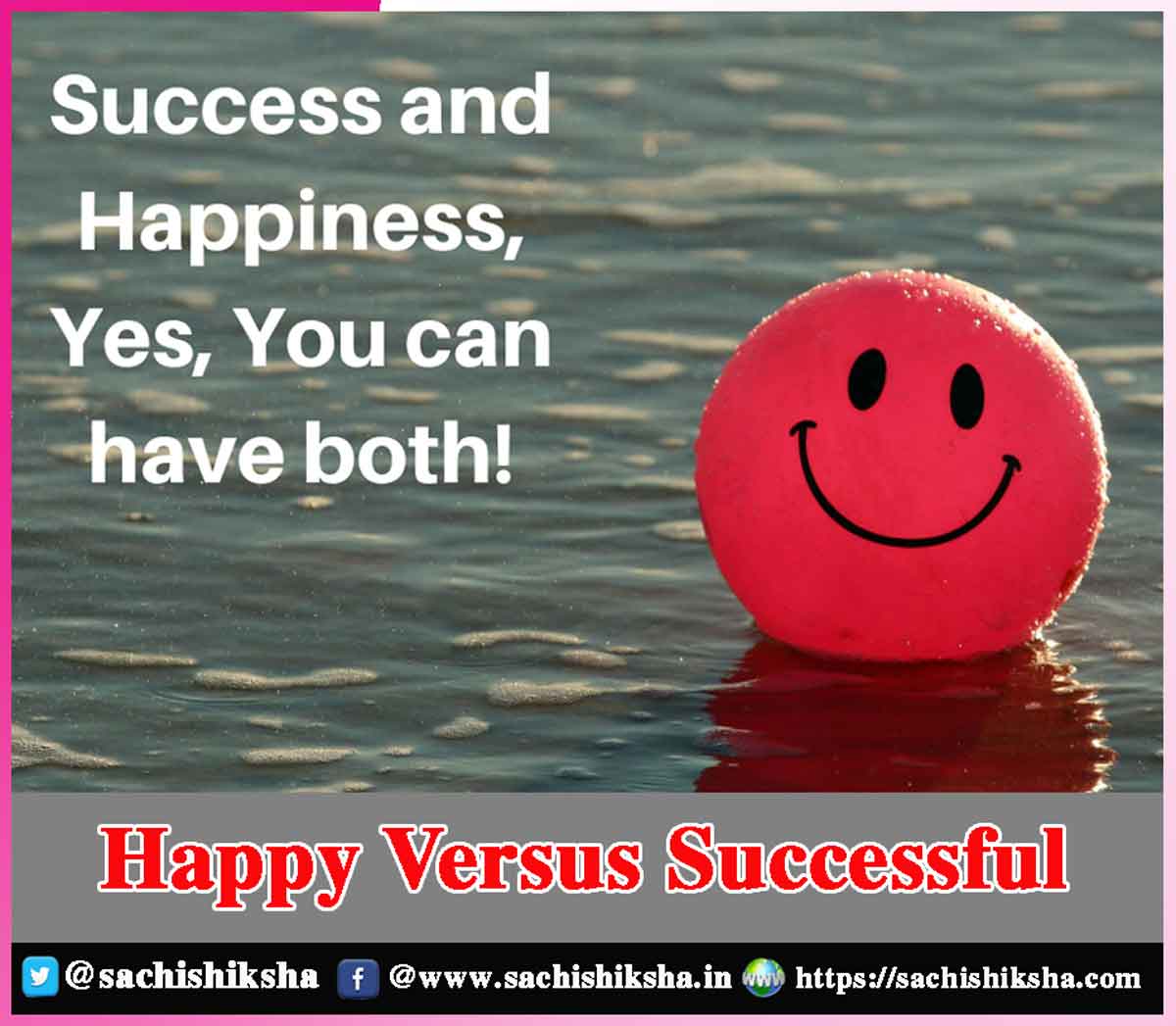Happy Versus Successful
Introduction : The concepts of happiness and success are often intertwined in popular culture and personal aspirations, but they are distinct and can sometimes be at odds. Understanding the differences and interplay between happiness and success can offer valuable insights into leading a fulfilling life. This essay delves into the definitions, measurements, interconnections, and potential conflicts between happiness and success, offering a nuanced perspective on achieving a balanced and meaningful life.
Table of Contents
Defining Happiness and Success
Happiness is a subjective state characterized by feelings of contentment, joy, and well-being. It encompasses both hedonic aspects (pleasure and avoidance of pain) and eudaimonic aspects (meaning and purpose in life). Happiness is often measured through self-reported surveys that assess overall life satisfaction, the frequency of positive emotions, and the absence of negative emotions.

Measuring Happiness and Success
The measurement of happiness usually involves psychological tools such as the Subjective Happiness Scale (SHS), the Positive and Negative Affect Schedule (PANAS), and the Satisfaction with Life Scale (SWLS). These tools assess an individual’s self-perceived well-being and emotional state.
Success is measured by more objective criteria. These might include career progression, financial assets, awards, degrees, and other forms of recognition. Success is often visible and quantifiable, making it easier to measure compared to the subjective nature of happiness.
The Interconnection Between Happiness and Success
There is a common belief that success leads to happiness. This notion is often reinforced by societal norms and cultural narratives that equate material wealth and professional achievement with personal fulfilment. However, research suggests a more complex relationship between the two.
- Happiness Leading to Success: Studies indicate that happiness can precede and facilitate success. Positive emotions enhance cognitive functions, creativity, and problem-solving skills, which are valuable in professional settings. Happy individuals are more likely to be motivated, resilient, and have better interpersonal relationships, all of which can contribute to achieving success.
- Success Leading to Happiness: While success can contribute to happiness by providing financial security, a sense of accomplishment, and social recognition, it is not a guarantee of sustained well-being. The satisfaction derived from success can be temporary, and the pursuit of success can sometimes lead to stress, burnout, and neglect of personal relationships and health.
Potential Conflicts Between Happiness and Success
- Stress and Burnout: The relentless pursuit of success can lead to chronic stress and burnout. High-achieving individuals often face intense pressure, long working hours, and a lack of work-life balance, which can negatively impact their happiness.
- Sacrifice of Personal Life: Achieving success in career or business often requires sacrificing personal time, relationships, and hobbies. This imbalance can lead to loneliness, relationship strain, and a lack of fulfilment in other areas of life.
- Materialism and Shallow Fulfilment: The pursuit of material success can lead to a focus on extrinsic goals such as wealth and status, which may not provide deep, lasting happiness. The research shows that intrinsic goals, such as personal growth, relationships, and community involvement, are more closely associated with long-term well-being.
- Hedonic Treadmill: The “hedonic treadmill” refers to the phenomenon where individuals quickly return to a baseline level of happiness despite achieving significant successes or acquiring wealth. The initial boost in happiness from success is often temporary, leading to a continuous pursuit of more achievements without lasting fulfilment.
Balancing Happiness and Success
- Redefining Success: Redefining what success means on a personal level can help align it with happiness. Success should include not only professional achievements but also personal growth, meaningful relationships, and overall well-being. By broadening the definition of success, individuals can pursue goals that contribute to both external accomplishments and internal fulfilment.
- Setting Balanced Goals: Setting balanced goals that encompass various aspects of life can help ensure that the pursuit of success does not overshadow happiness. Goals should include career aspirations as well as personal development, health, relationships, and leisure activities.
- Mindfulness and Self-Reflection: Practicing mindfulness and regular self-reflection can help individuals stay connected to their values and well-being. This can prevent the single-minded pursuit of success from leading to burnout and dissatisfaction. Mindfulness practices can include meditation, journaling, and regular check-ins with oneself to assess alignment with personal values and happiness.
- Prioritizing Well-Being: Prioritizing mental and physical well-being is crucial for maintaining happiness while pursuing success. This includes managing stress through exercise, adequate rest, healthy eating, and engaging in activities that bring joy and relaxation.
- Cultivating Relationships: Strong, supportive relationships are a key component of happiness. Investing time and effort in building and maintaining meaningful relationships can provide emotional support, companionship, and a sense of belonging, all of which contribute to overall well-being.
- Embracing a Growth Mindset: Adopting a growth mindset, where challenges are seen as opportunities for learning and development, can help balance the pursuit of success with personal fulfilment. This mindset encourages resilience, adaptability, and continuous self-improvement, which are beneficial for both happiness and success.
Conclusion
The relationship between happiness and success is complex and multifaceted. While success can contribute to happiness by providing financial security and a sense of achievement, it is not a guaranteed path to long-term well-being. Conversely, happiness can enhance the likelihood of achieving success by fostering positive emotions, motivation, and resilience.
To lead a fulfilling life, it is essential to balance the pursuit of success with the cultivation of happiness. This involves redefining success to include personal well-being, setting balanced goals, practicing mindfulness, prioritizing health, and nurturing relationships. By integrating these elements, individuals can achieve a harmonious balance that supports both their external accomplishments and their internal fulfilment. The ultimate goal is not just to be successful or happy, but to find a sustainable and meaningful way to experience both.














































